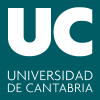
1.- Previous Studies
1.1.- Multidisciplinary studies (historical, archaeological, etc.).
1.2.- Heritage and territory.
1.3.- Urban regeneration.
1.4.- Economical and financial policies.
1.5.- Social participation processes and socio-cultural aspects in rehabilitation projects.
1.6.- Construction pathology.
1.7.- Diagnostic techniques and structural assessment (no destructive testing, monitoring and numerical modeling).
1.8.- Guides and regulations.






